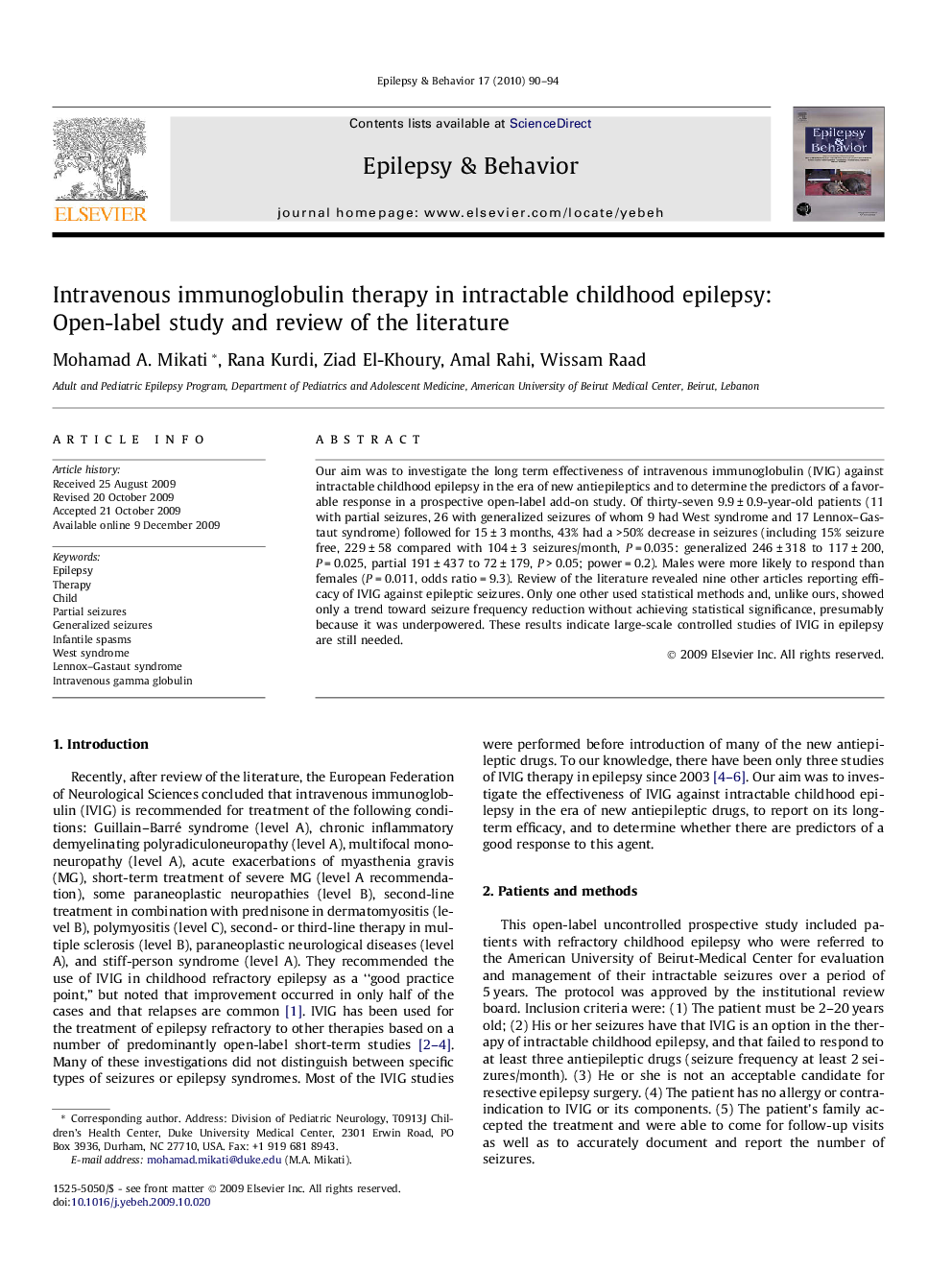| Article ID | Journal | Published Year | Pages | File Type |
|---|---|---|---|---|
| 3050691 | Epilepsy & Behavior | 2010 | 5 Pages |
Our aim was to investigate the long term effectiveness of intravenous immunoglobulin (IVIG) against intractable childhood epilepsy in the era of new antiepileptics and to determine the predictors of a favorable response in a prospective open-label add-on study. Of thirty-seven 9.9 ± 0.9-year-old patients (11 with partial seizures, 26 with generalized seizures of whom 9 had West syndrome and 17 Lennox–Gastaut syndrome) followed for 15 ± 3 months, 43% had a >50% decrease in seizures (including 15% seizure free, 229 ± 58 compared with 104 ± 3 seizures/month, P = 0.035: generalized 246 ± 318 to 117 ± 200, P = 0.025, partial 191 ± 437 to 72 ± 179, P > 0.05; power = 0.2). Males were more likely to respond than females (P = 0.011, odds ratio = 9.3). Review of the literature revealed nine other articles reporting efficacy of IVIG against epileptic seizures. Only one other used statistical methods and, unlike ours, showed only a trend toward seizure frequency reduction without achieving statistical significance, presumably because it was underpowered. These results indicate large-scale controlled studies of IVIG in epilepsy are still needed.
